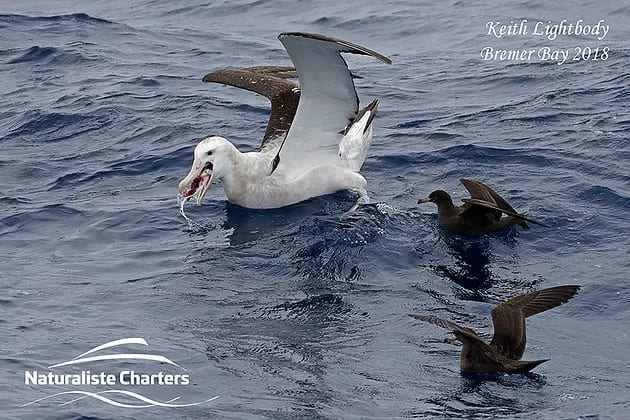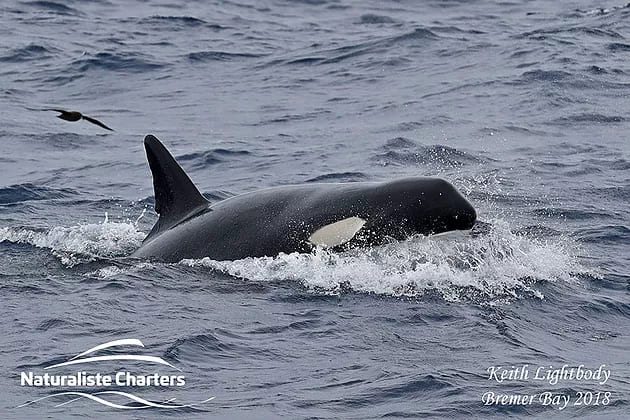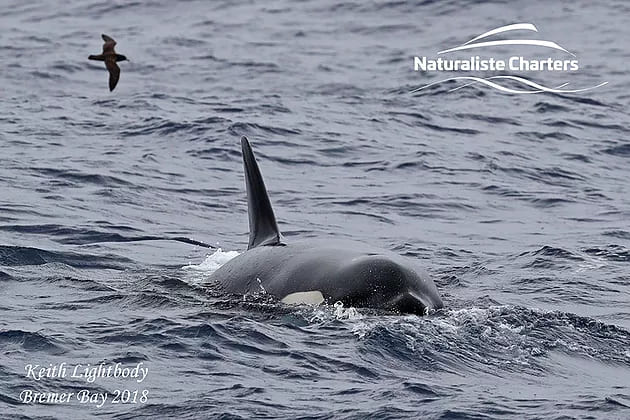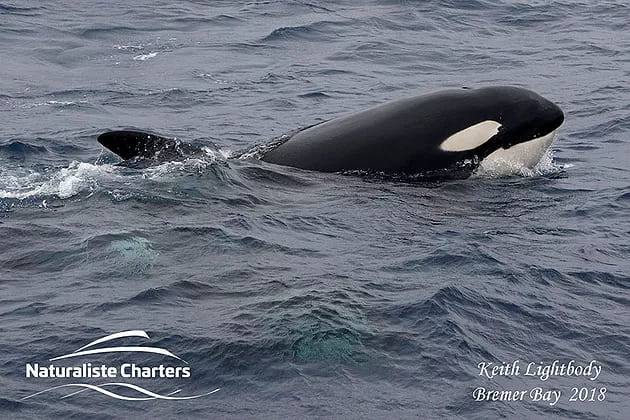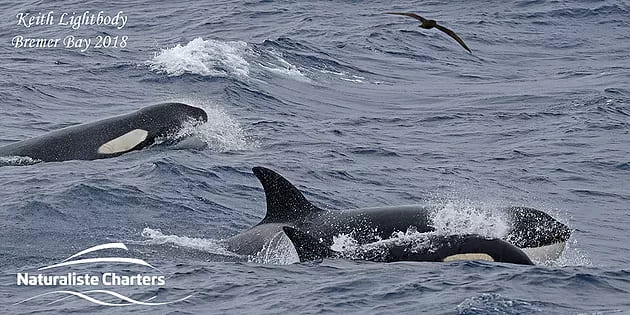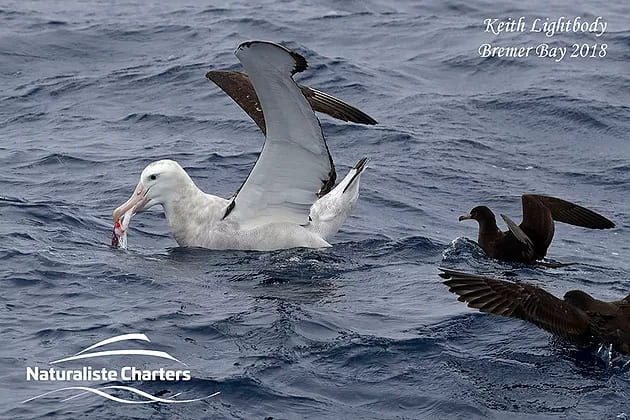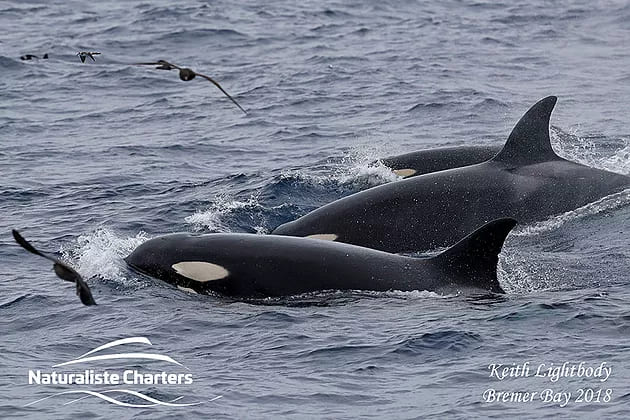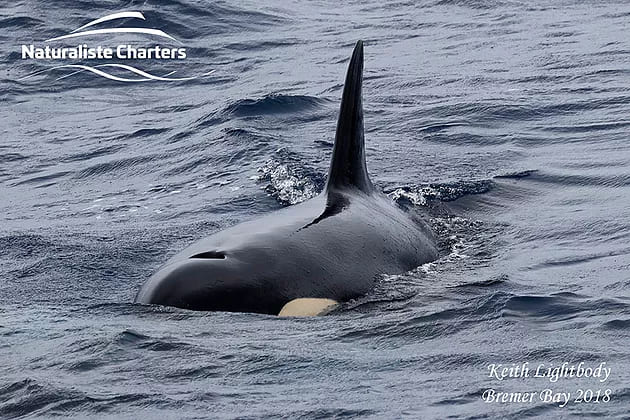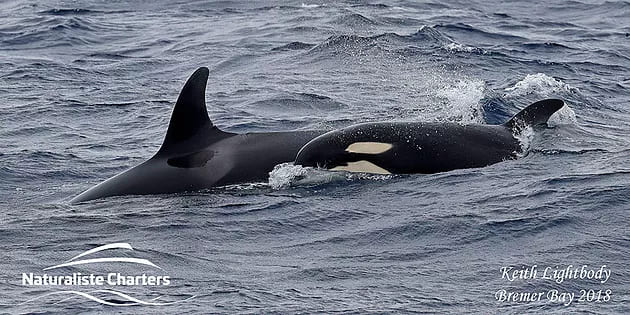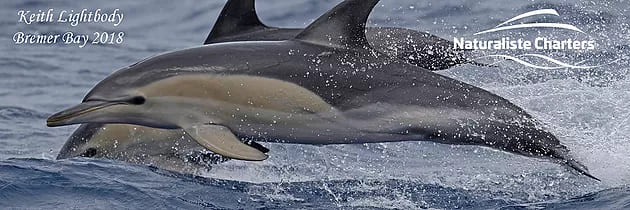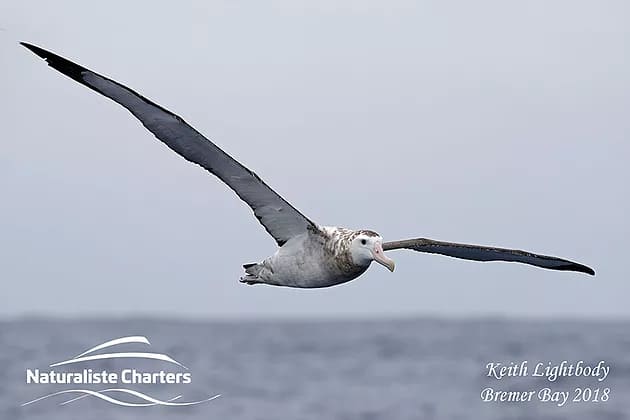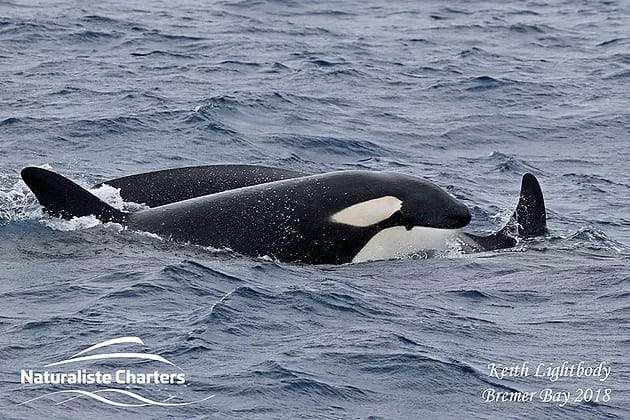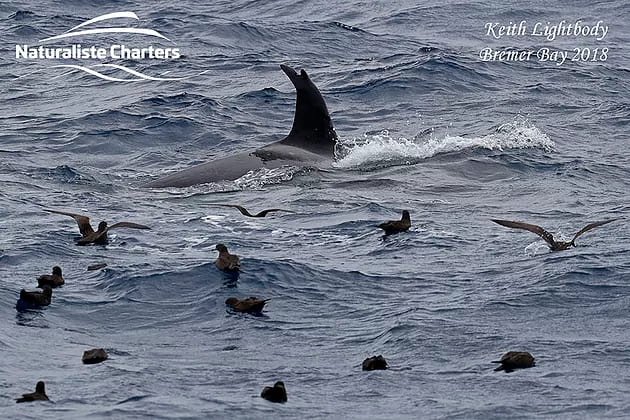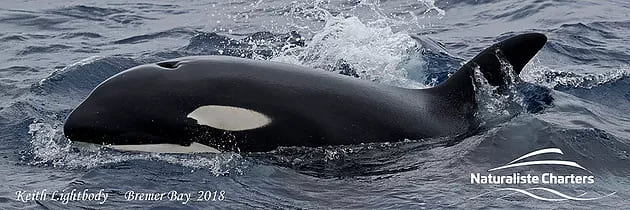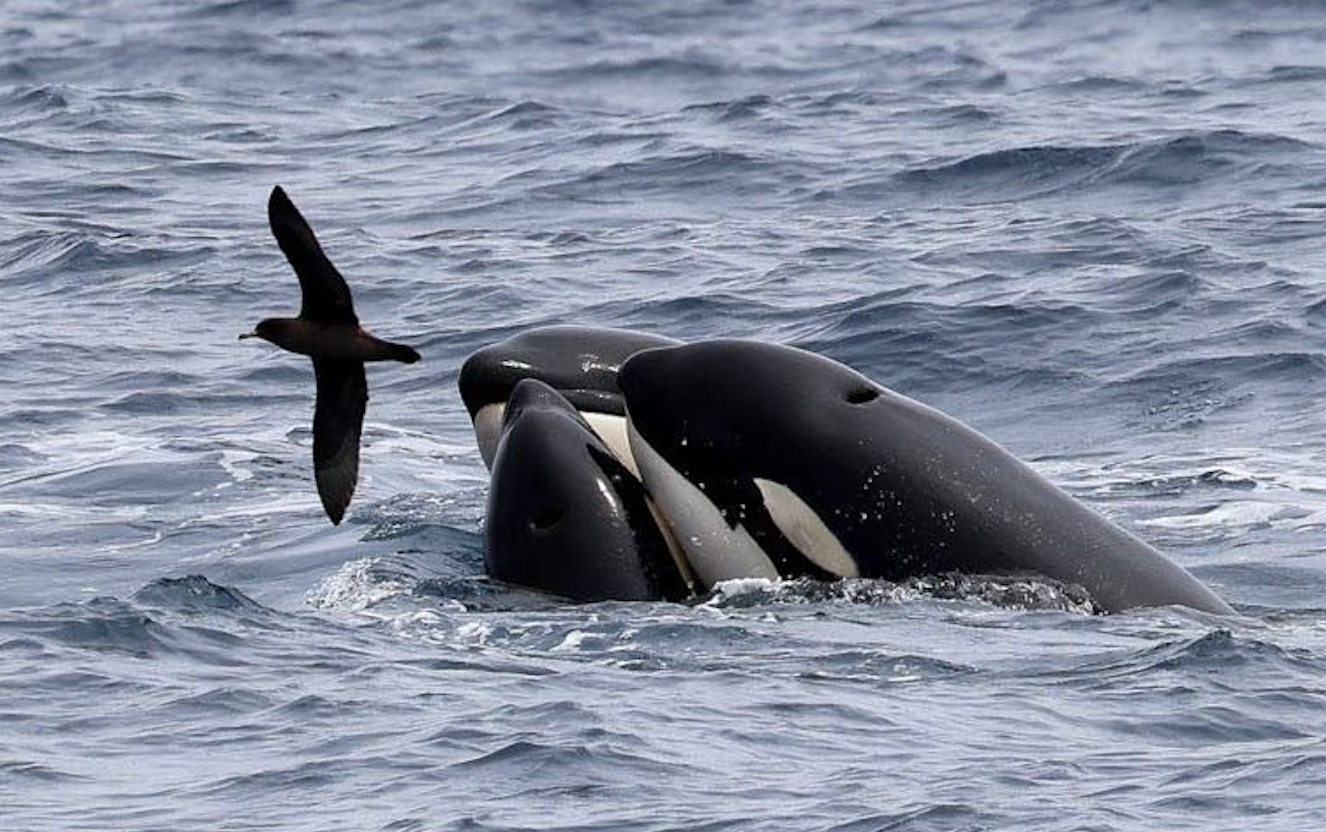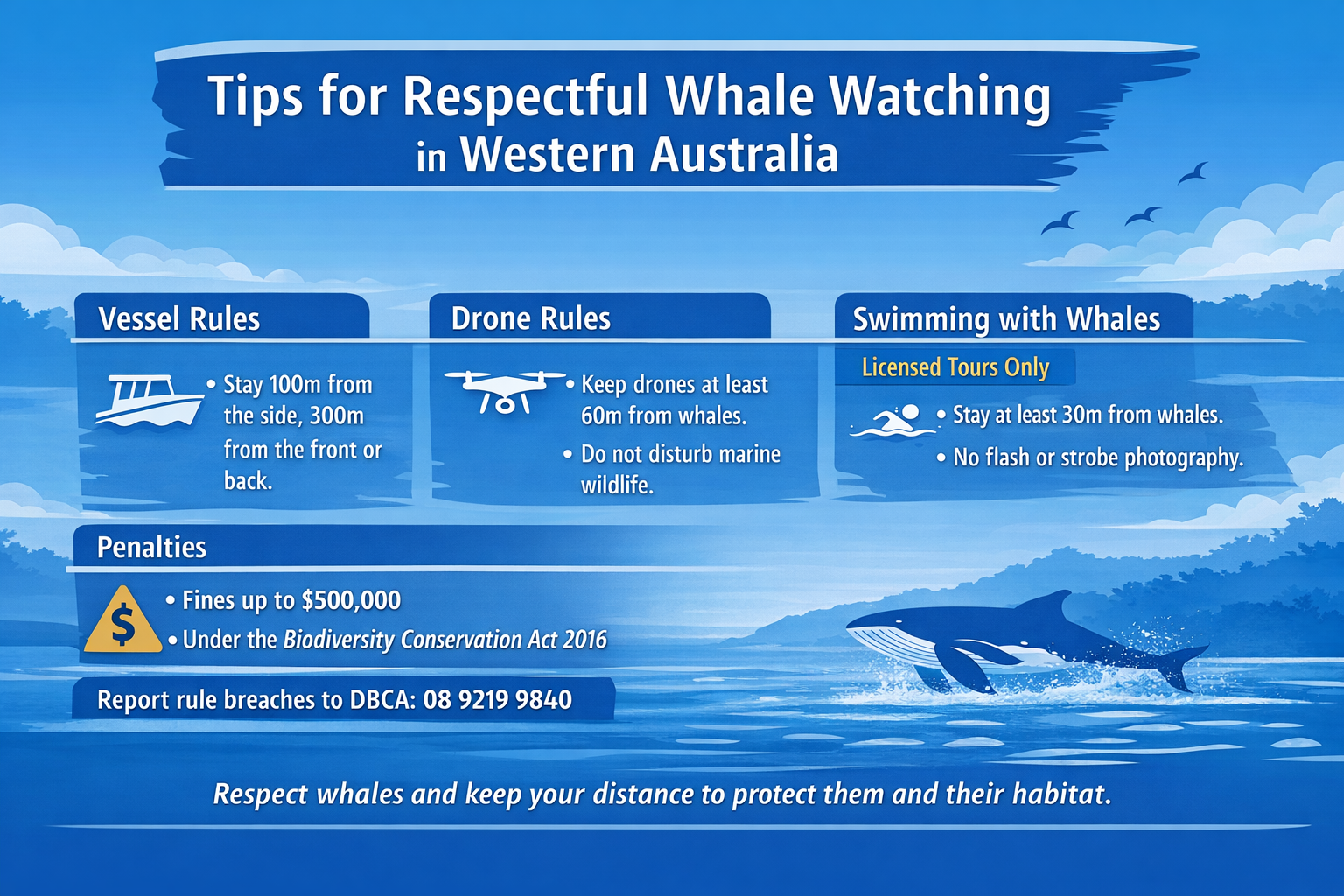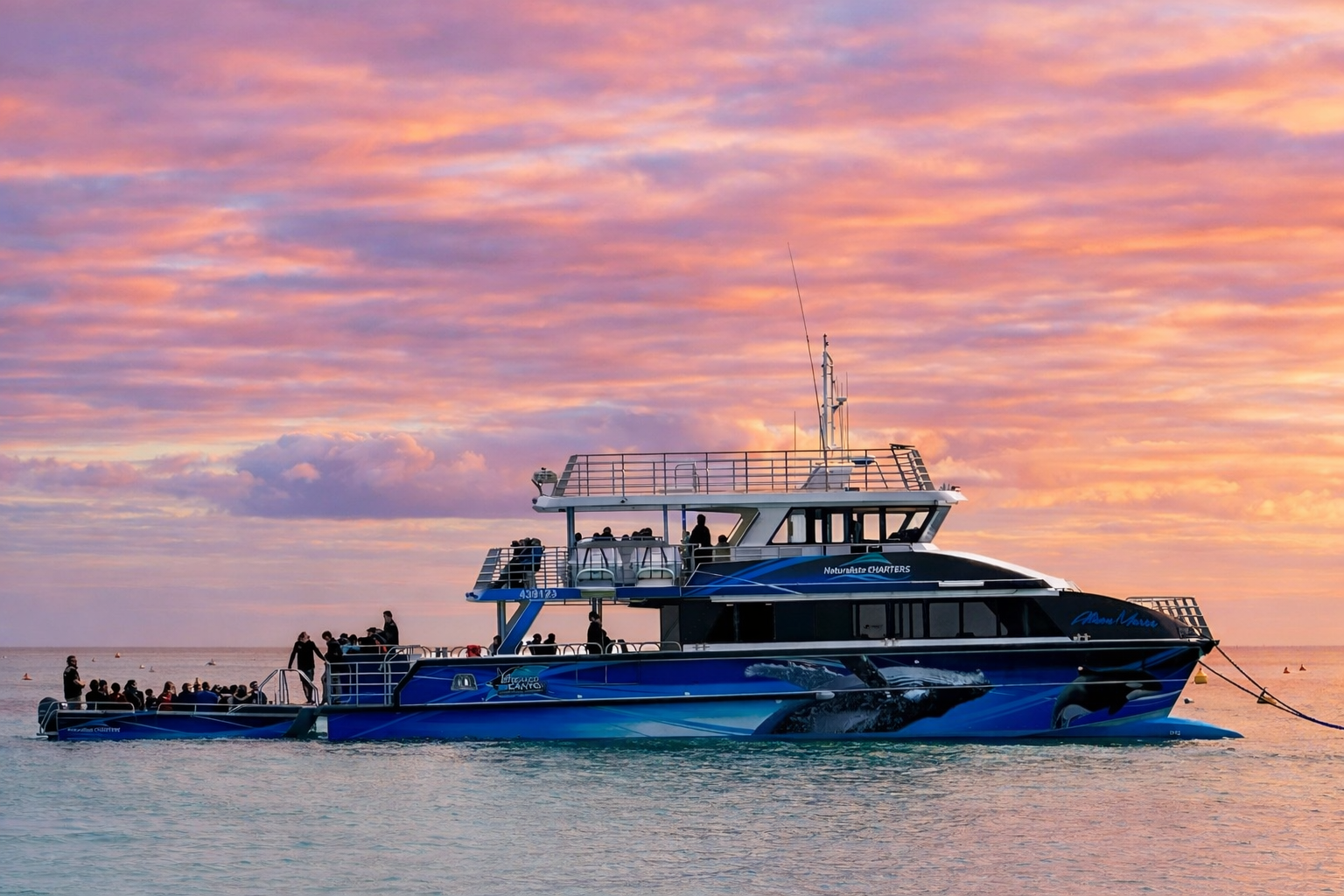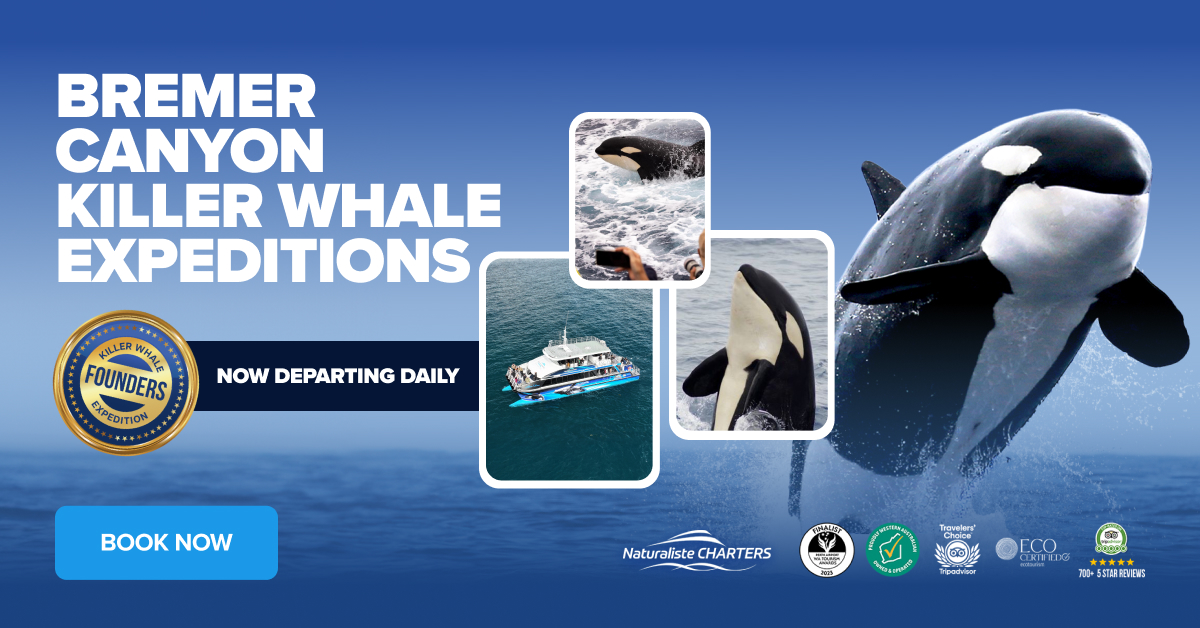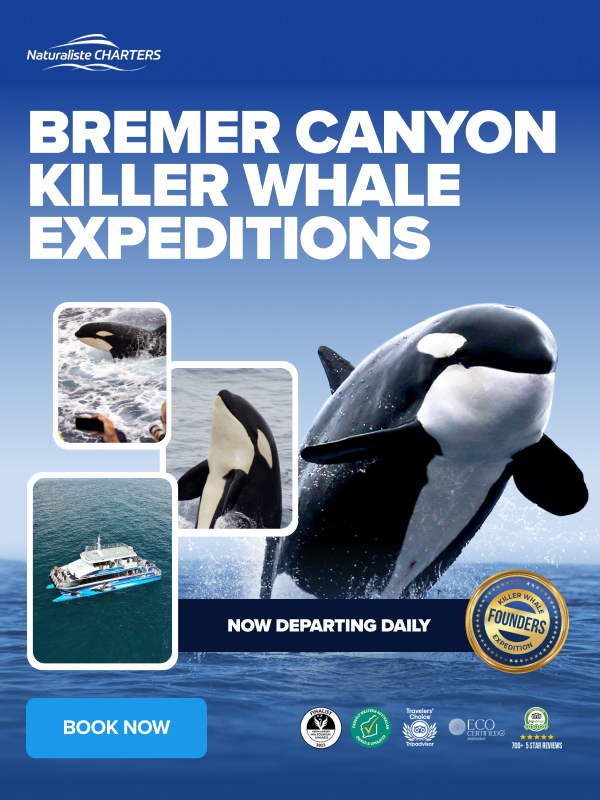A steely grey sea met our Alison Maree as she left the calm of the marina today. Our arrival at the canyon was heralded by a sharp increase in sea bird numbers. Keen expeditioners tracked the majestic flight of Indian Yellow Nosed, Shy and Wandering albatross as they glided effortlessly around our vessel, soaring in the updrafts created by the wind against the faces of the slaty swells. Amongst the graceful albatross forms, we also sighted a more unusual model, the stunning dark form of a single, rare Sooty Albatross. Silvery shoals of small tuna leap from the surface around us too. The ocean is alive today.
Through the lumpy grey seas, we immediately spotted the blows of orca off our stern. The tall, triangular dorsal fin of a large male killer whale cuts the surface, followed by one, perhaps two snaller fins. The small band travelled pod purposefully, almost evasively, keeping their distance.
A kilometer distant, porpoising north in decisive fashion as if they are late for an important date, we sighted the rest of the pod. Suddenly, the dolphins fan out into a rank formation and increase their speed. The distance between them and us increased rapidly, leaving us lagging behind. We increased our pace to close the gap as ahead of us, intense splashing confirmed what we already knew, the hunt had been successful. The killer whales converged on the area, and we had clear sight of the carcass as a killer whale carried it to the surface. Although already partially skinned, we were able to confirm that the prey was a beaked whale, but could not confirm the species.
Beaked whales are a family of medium sized toothed whales, containing 22 known species. They have an elongated beak like a dolphin, but have a larger more rounded body shape. They are the least known and understood of all the large mammals due to their deep offshore habitat, shyness around vessels and minimal amounts of surface time. Among air-breathing animals, beaked whales are some of the most extreme divers, with some species making regular regular dives for an hour at a depth over 1000 m to persue prey such as squid. The longest and deepest foraging dive recorded by a Cuvier’s Beaked Whale is 137.5 minutes at 2992m. This is the greatest dive-depth known for a mammal.
In contrast to the most recent attack on a beaked whale we witnessed two days earlier, there was little blood on the surface this time. It is possible this is because the prey was not dismembered quickly. The other possibility is that the orca took the prey down deep before it was dismembered.
If not for the chunks of meat carried by the killer whales when they surfaced, the scene had an almost a peaceful air as individuals and small groups surfaced, exhalaling in autible gusts that signalled their arrival as they did so. They fed on the carcass for the next two hours in three main groups, marked clearly by rafts of squabbling seabirds on the surface. We watched individuals sharing food, including two of the youngest calves currently at the canyon.
As the time to return to port approached, we set a course for home. With the serious business of feeding completed, the killer whales turned their attention to our vessel, making many close passes and swimming directly under the feet of those on deck. As one expeditioner commented, “thats the best farewell party I have ever had”! Nature was not done with dishing up spectacular sightings yet though, and what we dubbed the “final finale” was provided by a spectacular escort from a pod of common dolphins.
Until tomorrow,
The Bremer Canyon Crew

